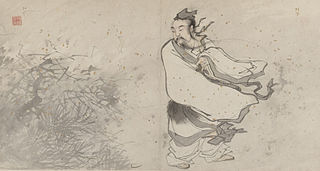A Quote by Jonathon Keats
What I think is really interesting is to look at the culture of disruption and of world-changing in terms of what [Buckminster] Fuller was doing and to draw the contrast more than the similarity.
Related Quotes
I was interested first of all in trying to capture this myth that was always changing and to create some sort of a master story, some version of the myth that resonated with me, since I could have taken more or less any detail that I wanted or the opposite and try to put that down on the page in a way that I could express from that outset for myself and for our readers what it was that was so magical about [Buckminster] Fuller's way of putting together the world.
I think what I've tried to do is make the world a better place. I think that's what's really important. Nobody remembers who sold the most togas in Rome. In terms of legacy, people remember the great villains more than they remember the great heroes. So I think how you feel about yourself is the most significant question. What do you say about yourself when you put your head on the pillow? Are you really proud of what you're doing and the way you're doing it? I think it's really a fundamental question.























